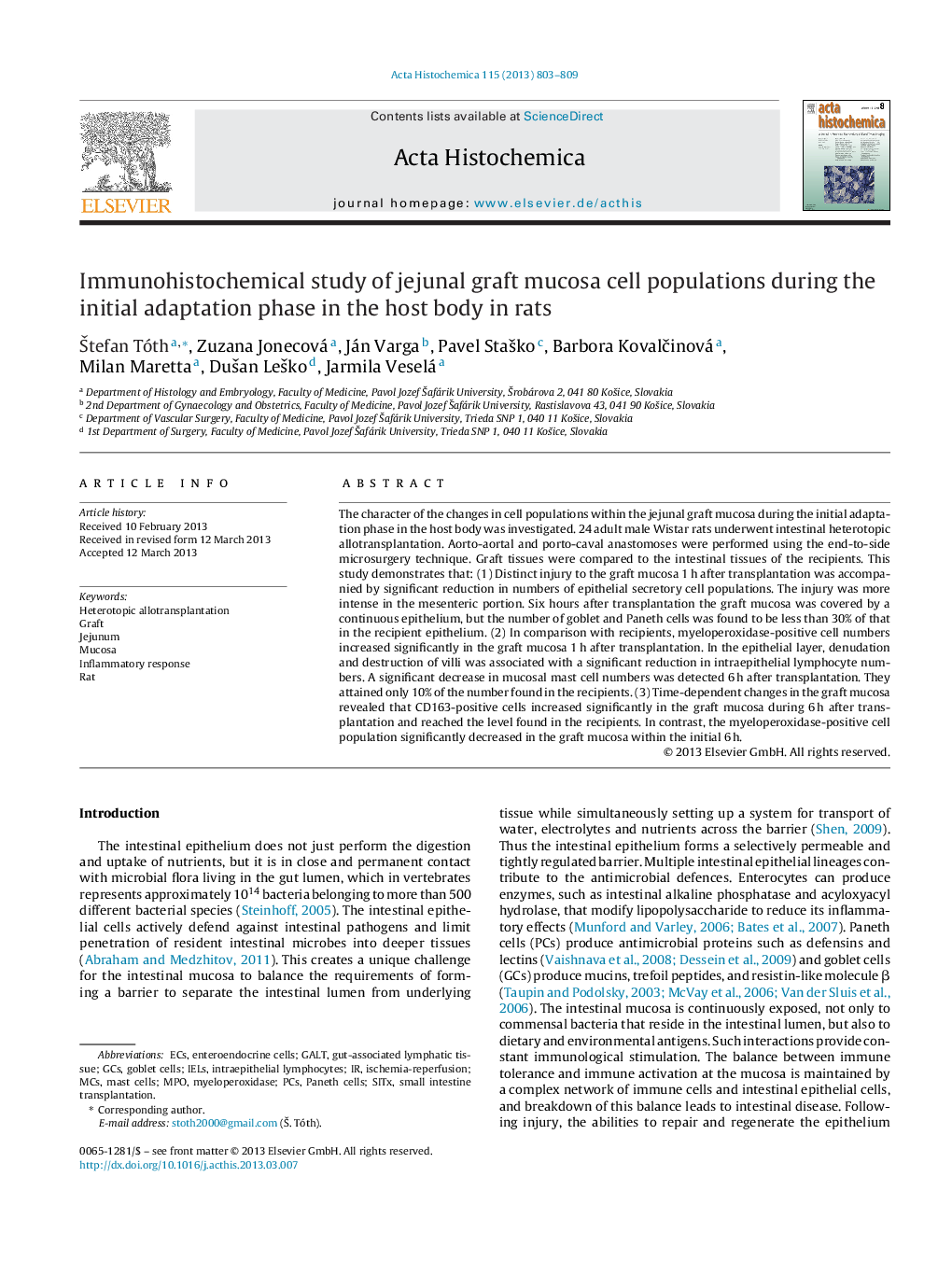| Article ID | Journal | Published Year | Pages | File Type |
|---|---|---|---|---|
| 1923748 | Acta Histochemica | 2013 | 7 Pages |
The character of the changes in cell populations within the jejunal graft mucosa during the initial adaptation phase in the host body was investigated. 24 adult male Wistar rats underwent intestinal heterotopic allotransplantation. Aorto-aortal and porto-caval anastomoses were performed using the end-to-side microsurgery technique. Graft tissues were compared to the intestinal tissues of the recipients. This study demonstrates that: (1) Distinct injury to the graft mucosa 1 h after transplantation was accompanied by significant reduction in numbers of epithelial secretory cell populations. The injury was more intense in the mesenteric portion. Six hours after transplantation the graft mucosa was covered by a continuous epithelium, but the number of goblet and Paneth cells was found to be less than 30% of that in the recipient epithelium. (2) In comparison with recipients, myeloperoxidase-positive cell numbers increased significantly in the graft mucosa 1 h after transplantation. In the epithelial layer, denudation and destruction of villi was associated with a significant reduction in intraepithelial lymphocyte numbers. A significant decrease in mucosal mast cell numbers was detected 6 h after transplantation. They attained only 10% of the number found in the recipients. (3) Time-dependent changes in the graft mucosa revealed that CD163-positive cells increased significantly in the graft mucosa during 6 h after transplantation and reached the level found in the recipients. In contrast, the myeloperoxidase-positive cell population significantly decreased in the graft mucosa within the initial 6 h.
